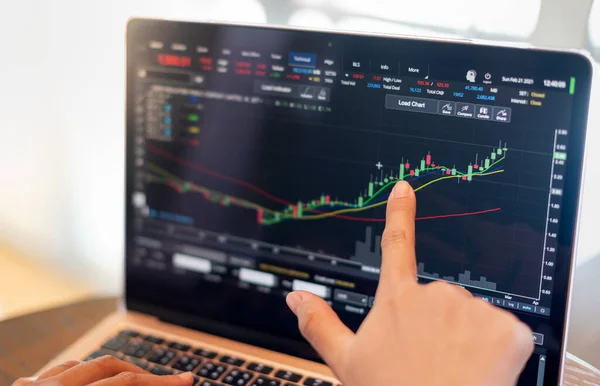Mastering the forex market entails more than merely understanding the basics of currency trading. It involves learning advanced trading strategies, understanding risk management, developing a winning strategy, using technical analysis tools, and mastering emotional intelligence. In this article, we will explore these facets of forex trading that can propel you from being a novice trader to a seasoned professional.
1. Unraveling the Mysteries of Forex Trading
Forex trading, short for foreign exchange trading, involves the buying and selling of currencies. The forex market is the largest and most liquid financial market worldwide, with a daily trading volume exceeding $5 trillion. It operates 24 hours a day, providing endless opportunities for traders. However, its complexity can be daunting. To unravel the mysteries of forex trading:
- Understand the basics of currency trading: buying low and selling high
- Familiarize yourself with the most traded currency pairs like EUR/USD, GBP/USD, and USD/JPY
- Learn about factors that affect currency prices like economic data, political events, and market sentiment
- Stay updated with global economic trends and news events
- Practice trading with a demo account before risking real money
2. Advanced Techniques for Optimal Forex Trading
To succeed in forex trading, it’s essential to master advanced trading techniques. High-frequency trading (HFT) involves making thousands of trades per second using powerful computers. Algorithmic trading uses complex algorithms to automate trading decisions. Scalping aims to profit from small price changes. Another technique is the carry trade, which involves borrowing a currency with a low-interest rate and investing in a currency with a high-interest rate. Lastly, understand the trading sessions – Asian, European, and American, and their impact on currency pairs.
3. Mastering Risk Management in Forex Trading
One of the most critical aspects of successful forex trading is risk management. It involves limiting potential losses to preserve your trading capital. Here are some risk management techniques:
- Never risk more than a small percentage of your trading capital on a single trade
- Use stop-loss orders to limit potential losses
- Regularly review your trading performance and adjust your strategy accordingly
- Diversify your trading portfolio by trading different currency pairs
- Understand leverage and how it can amplify both gains and losses

4. Developing a Winning Forex Trading Strategy
A well-defined trading strategy is a road map to success in forex trading. Your strategy should outline your trading goals, risk tolerance, and specific criteria for entering and exiting trades. It could be based on technical analysis, fundamental analysis, or a combination of both. Once you have a strategy, stick to it consistently, and avoid impulsive decisions based on emotions.
5. Technical Analysis: A Key Tool for Forex Traders
Technical analysis is a vital tool for forex traders. It involves analyzing historical price data to predict future price movements. Common technical analysis tools include:
- Trend indicators (Moving Averages, MACD)
- Momentum indicators (RSI, Stochastic Oscillator)
- Volatility indicators (Bollinger Bands, Average True Range)
- Volume indicators (On-Balance Volume, Money Flow Index)
By mastering these tools, traders can identify trading opportunities and make informed decisions.
6. The Importance of Emotional Intelligence in Forex Trading
Emotional intelligence (EI) plays a crucial role in forex trading. Successful traders can manage their emotions, stay disciplined, and make rational decisions. High levels of EI lead to better decision-making, improved risk management, and overall trading success. Traders should develop resilience to handle losses and the ability to stay focussed during winning streaks. Developing emotional intelligence is as important as mastering technical skills in forex trading.
Mastering the forex market is no easy feat. It requires a deep understanding of advanced trading strategies, risk management, strategy development, technical analysis, and emotional intelligence. By taking the time to learn and incorporate these elements into your trading, you can navigate the forex market with confidence. Remember, consistency and resilience are key to long-term success in forex trading.





